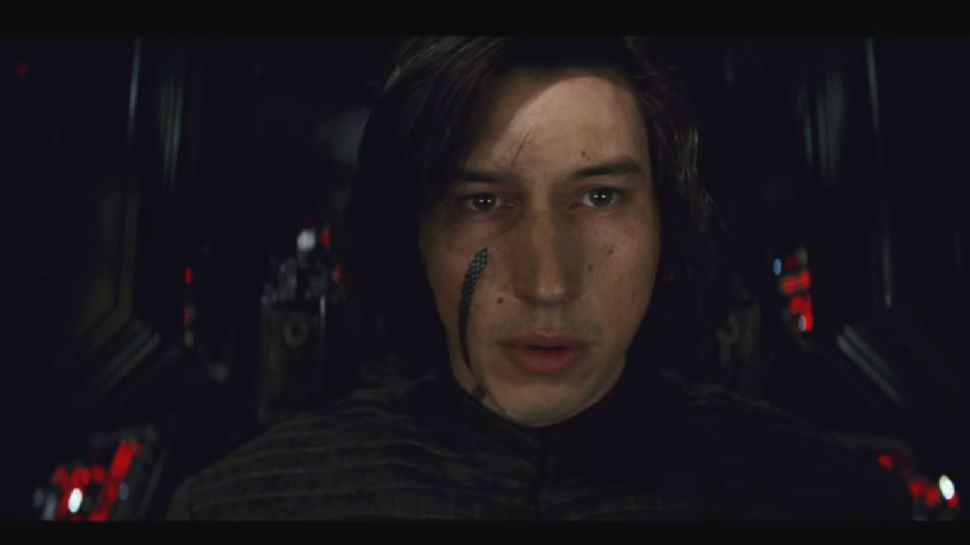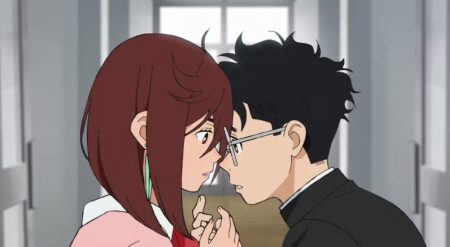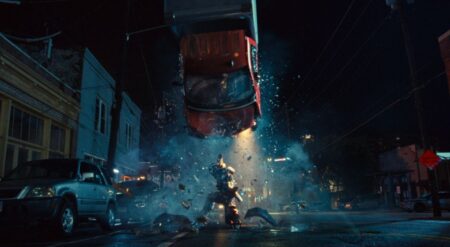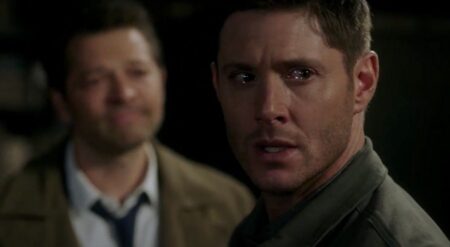
In the Star Wars Sequel Trilogy, there is one character that has divided moviegoers, unlike any other character. Kylo Ren means a lot of things to a lot of different people. There is no one answer because art is ultimately subjective. As a result of the wide breadth of response, and my own personal response to him, to me he is the most fascinating, yet conflicting and sometimes terrifying, the villain in all of Star Wars.
I feel like I need to preface this piece with a wide disclaimer: you are NOT wrong for liking/sympathizing with Kylo Ren. Just because I find him to be an analogy for current geopolitical evils does not mean I think you’re in any way a bad person for liking/loving him as a character. We all bring our own personal experiences and interpretations to the table. This is simply mine.
When The Force Awakens came out, it had just been a year since ISIS had started terrorizing and committing genocide against the Yazidis, a subset of my people, the Kurds. The past couple of years in Kurdistan have been terrifying for me. Thankfully my family has all been safe but seeing the ethnic cleansing and atrocities committed against the Yazidis elicited terror in me that I’ve never felt before. I had always known how Saddam Hussein had persecuted and committed genocide in the late 1980s against the Kurds, but this felt more real because I was living it in real-time.
In the run-up to the release of The Force Awakens, I immediately saw The First Order as an allegory for a crusading extremist army as ISIS was, along with being the Neo-Nazis for the human-supremacist and fascist Galactic Empire. The resemblance seemed uncanny to me: both were marauding extremist armies killing and subjugating anyone who did not agree with their ideology.
I likened Kylo Ren to an ISIS fighter who had turned his back on his family and common decency. The Force Awakens is one of my favorite films of all time, partially because of its allegories to fascism in the real world. As we see today in the news, fascism is not dead. We did not defeat in World War II, and have recently seen aspects of it on display in places like Charlottesville. Likewise, in the Star Wars universe, The First Order rose from the ashes of the Empire to spread their evil ideology across the galaxy. One of the indisputable messages of the Sequel Trilogy (especially in today’s political climate) is that fascism can always arise from unseen anger, fear, and hatred and that we must always be vigilant against it.
I’ve always loved bad guys in Star Wars-like Emperor Palpatine and Darth Vader, and I like the bad guys we have in the new trilogy. The fundamental difference, however, is that the latter villains feel so much more real to me, and that’s why I’ve judged them more harshly. However, I never fault anyone for liking or loving villains, since villains are fictional characters that we can love as well as the heroes in a hyper-realistic setting.
I love Palpatine and Iden Versio as awesome and badass characters, even though I obviously don’t agree with their ideologies. I’m able to keep the mental distance because I know it’s fiction. My personal difference with The First Order, however, is that I feel like I’ve known Kylo Rens and General Huxes in my own life and the current socio-political sphere. In my perceived allegory of The Force Awakens and The Last Jedi, I feel terrified by these villains for what they represent from our own world, especially coming from a persecuted minority.
The timing couldn’t have been more perfect to project my feelings onto The First Order. I saw Kylo Ren in particular, as an entitled selfish, enraged, and hateful individual, and an embodiment of the toxic masculinity and fanaticism that could lead to the type of extremism that subjugated my people, or other persecuted minorities. I likened him immediately to an extremist because of the political climate we live in. I had already made the presumption that these villains would be defeated because they were horrendously evil and would be defeated like extremists in our own world.
I was convinced that Kylo Ren was objectively evil and beyond any sort of redemption after The Force Awakens. His killing of his father Han Solo, who had opened his heart and soul to his son in the most sincere effort possible to turn him back completely revolted me. Surely after committing an act as horrific as patricide Ren could not come back to the good side? Surely Rey could not forgive this monster for killing her father figure and horribly scarring her dear friend Finn?
I saw Rey’s victory over him as the just and humble warrior striking down the evil entitled Skywalker heir. I was surprised, shocked even, to see some of my fellow fans advocate for a Kylo Ren redemption (or “Rendemption” as my friend Amy Wishman of Unmistakably Star Wars coined it) in the interim between The Force Awakens and The Last Jedi. I didn’t understand, and in many ways refused to understand, why we should forgive Kylo after everything he’s done. I was willing to forgive Vader at the end of Return of the Jedi after all he had done because he embraced Luke’s love for him, but not Kylo who had cruelly rejected his family’s love in the worst imaginable way.
I saw this character as an amazing villain you love to hate. I saw him as the embodiment of extremist male entitlement who would be defeated by our feminist hero. So much of that was my expectation for The Last Jedi, which defied virtually everyone’s expectations. Watching the film, the Force connection shocked me, both in happening at all and being done so well to make me accept a kinship between the character I loved and the character I hated. Both had experienced some sort of abandonment, rejection, and isolation that they could relate to in each other.
Rey could even begin to understand why he would kill his own father (though not necessarily forgive him), and sympathize with his psychological struggle. Through understanding the initial reason for Ben Solo’s turn through Rey’s interactions with him, I began to sympathize a little with this extremist and even root for Rey to turn him to the Light Side. I understood that his feeling abandoned by his mentors and being viewed as a “monster” while under the pressure of being Leia and Han’s son could push him towards Snoke. That was the most shocking thing for me out of The Last Jedi: I sympathized, if only partially, with the character I hated most.

Rey is my favorite character in the Sequel Trilogy and my favorite character of all time tied with Luke Skywalker. I was initially conflicted when she made the decision to try and redeem Kylo Ren out of a perceived need to bring him into the fight, but I realize now that’s part of why I love Rey–she always sees the good in others, even with someone like Kylo. The Last Jedi did the unthinkable for me: it made me open to the idea of “Redemption.” I cheered and clapped in The Last Jedi when he and Rey killed Snoke. At the moment I was shocked that I was cheering, after having thought he was irredeemable. After his and Rey’s Force Skype sessions and seeing what happened that night with Luke, I understood more about why he is sympathetic.
For all the feelings that Kylo Ren/Ben Solo has elicited in me and so many others, I think he is the franchise’s greatest villain. I believe he will be remembered as one of their best, longest-lasting characters, along with Luke, Leia, Han, Rey, Finn, and Darth Vader. He’s ultimately a character in our modern mythology, and not real. My friend Caitlin Plesher of the Skytalkers Podcast reminded me that “the story is being created with future generations in mind, which is very different for other franchises,” and that we have to remove it to some degree from the current socio-political climate, even though it is certainly influenced by it.
I still hold my personal interpretations of Kylo and that he is at least partially inspired by extremists, but I also recognize that he’s a fantastical villain in a fairy tale that doesn’t ascribe to my specific interpretation. My take is just one of many. Ultimately no one’s wrong because it’s just that: a fairy tale set in space.
Right now, I’d say I’m open to a Kylo Ren atonement arc, but that I don’t know how it would happen in the space of Episode IX. His rejection of Rey’s offer and his continual path down the Dark Side is beyond frustrating. Why should I place my faith in someone to find redemption when he has rejected it so many time before, and after all of the terrible things he’s done? At the same time, I see what Rey saw in their shared vision. Kylo turned to the Dark Side out of severe insecurity and manipulation by Snoke, not out of an initial (as far as we know) desire to subjugate the Galaxy.
The Last Jedi is my favorite film of all time, partially because of how it has, in my opinion, deftly challenged biases and assumptions. I still see Kylo as a brilliant analogy for the perils of extremism, but that does not mean I 100% condemn him and think he’s beyond redemption. That said, I can’t in good faith say I want or necessarily think he will be redeemed. Right now the future is up in the air for Kylo Ren in Episode IX, and I don’t know where he’s going to end up. As long as my heroes Rey, Finn, Poe, Rose, and others restore peace and freedom to the Galaxy and are happy, I’m happy. Maybe Ben Solo could be a part of that too.






